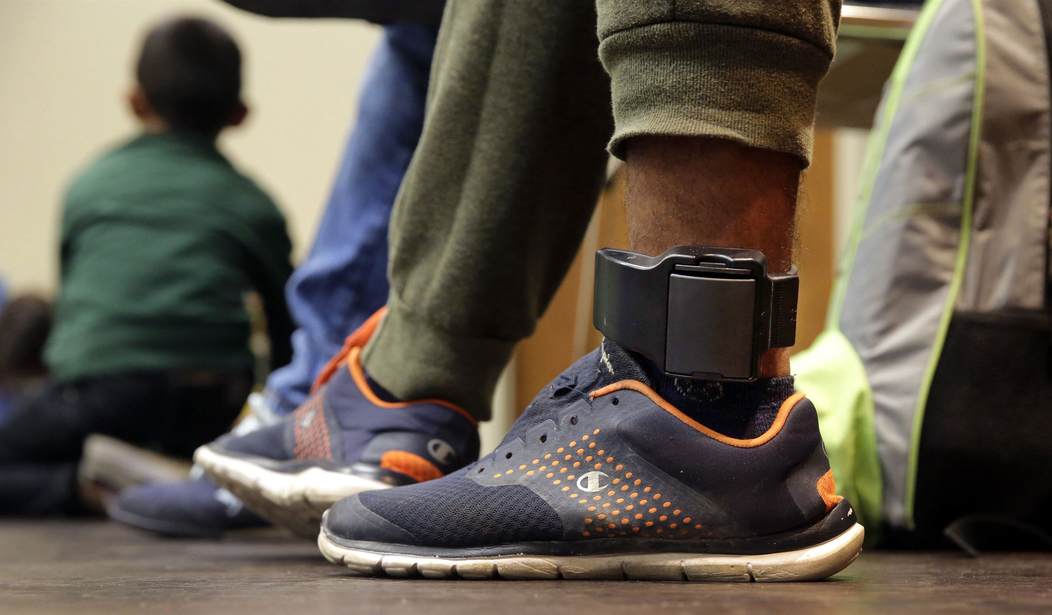Electronic monitoring has become an increasingly common practice in the criminal justice system, allowing criminal defendants to remain out of jail while they await trial even if there are concerns about flight risks or dangers to the community at large. The idea is that as long as the system is keeping electronic eyeballs on the suspect, authorities will be able to keep them on the straight and narrow. In practice, however, defendants have been known to cut off the devices or even let the batteries die, and it’s often days before there’s any official response. In the meantime, they’re now off their electronic tether, and often go on to commit more crimes.
The murder of Peggy Rayburn is a particularly egregious example of how this system works in practice. Rayburn’s estranged husband Marshall had been charged with raping her, and was allowed to bond out as long as he agreed to wear his electronic monitoring device. The trouble is that Rayburn almost immediately violated the rules of his release, but the company that was supposed to be keeping tabs on him never did anything about it.
For several weeks after he bonded out, Marshall Rayburn violated terms of his release with trips to Chick-Fil-A, Walmart, a sex shop and his wife’s neighborhood — all of which his ankle monitor recorded on a minute-to-minute basis, company records show. One late September night, he parked near Peggy Rayburn’s house, wrapped his ankle monitor in duct tape to kill the signal, and made his final move.
It wasn’t until their bodies were found that authorities pieced together what had happened. Furious, D’Aquilla decided to pursue charges against the company that had known Marshall Rayburn’s whereabouts all along.
“We wanted justice for Peggy and her family,” [West Feliciana Parish District Attorney Sam] D’Aquilla said Thursday, after the grand jury’s decision. “But we also want to put a spotlight on the ankle monitoring system.”
American Electronic Monitoring owner Van Hopkins and employee Deborah Shirley, who was tasked with keeping tabs on Marshall Rayburn, have both now been indicted by a grand jury and charged with negligent homicide for Peggy Rayburn’s killing. It appears to the be the first time in the state of Louisiana that anyone associated with an electronic monitoring company has faced negligence charges in connection to a crime committed by someone under their watch, but as The Advocate reports, the entire electronic monitoring system is operating with very little oversight, even from the courts that order the monitoring in the first place.
Dozens of records requests filed by The Times-Picayune | The Advocate since the September murder-suicide showed that few courts in the Baton Rouge region maintain contracts or have standards for companies that provide ankle monitoring services. Clerks in some parishes insist they have no way of tracking the number of people released on ankle monitors.
The system in East Baton Rouge city-parish is run “entirely through the courts,” said District Attorney Hillar Moore III.
“We only know what we know,“ Moore said in March. “This depends totally on the company monitoring the defendant to report battery failure (and) violations.”
In the wake of the murder-suicide in St. Francisville, at the request of West Feliciana Parish Sheriff Brian Spillman, Louisiana Attorney General Jeff Landry issued an opinion saying that law enforcement offices have no obligation to run monitoring programs themselves. The question of whether those systems should rest with law enforcement or private companies has sparked debate in cities like New Orleans.
Whether or not it’s the public or private sector running these programs, oversight is what’s needed and yet is clearly lacking. How many crime victims are lulled into a false sense of security because they believe that their attacker is at least being monitored while they’re out on bond, not realizing that the system rarely works as advertised?
A restraining order is just a piece of paper to someone willing to violate it, and electronic monitoring quickly becomes a non-issue when a defendant realizes no one’s actually paying attention to his movements. Add to that the fact that law enforcement has no duty to protect you as an individual, and the importance of recognizing that your safety is ultimately your responsibility becomes even clearer. Yes, we should absolutely work to reform and improve the criminal justice system, but it’s at least as important to protect and preserve our individual right to armed self-defense, because relying solely on the system to keep you safe can have deadly consequences.









Join the conversation as a VIP Member